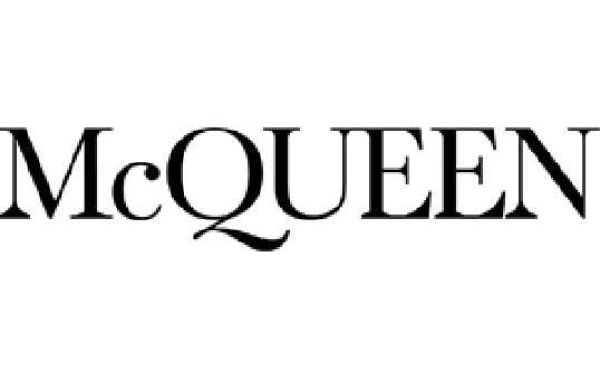The article was written by the https://essays-panda.com/marketing-essay
One of the most notable philosophical debates in the world right now is the problem of evil in a world where God exists. God, at least in the Abrahamic faiths, is all powerful, benevolent, and all knowing. Evil, on the other hand, is the epitome of what is wrong with the universe. Many philosophers posit that it is impossible for an all-powerful, all-knowing, and all-good God to be extant in a world where evil subsists. The argument stems from the postulates that God is all good, he would not tolerate evil, which he has the power to obliterate, and he would know that evil exists. However, an analysis of the existence of God, as understood in the Christian tradition, and the concept of evil shows that it is possible for God and evil to co-exist without there being a contradiction.
According certain atheistic philosophers, who are some of the most fervent advocates of the incompatibility of the idea of God and evil, there is an intent contradiction between the very idea of an omnipotent God, who is all good, and the existence of evil. According to the proposition made by Langtry, a believer has to confront the fact that either God does not possess all the qualities that people believe him to or evil does not exist (Langtry 191). This formulation seems to have been borrowed from the Greek philosopher Epicurus, who suggested that God might have been willing to prevent all evil, but then found it impossible. That would mean that he was not omnipotent (Molloy 95). Furthermore, Epicurus asserted that, if God had the ability to stop evil but he refused to do so, then such a God should be considered malign. In the instance when God was both willing and capable of eliminating evil, the problem of evil would seize to exist. Epicurus concluded that a God that was neither able nor willing to stop evil was not deserving of such a title (Molloy 95). It is apparent that evil exists in the world. There are wars, crime, famine. Young children die of cancer, while innocent people lose their livelihoods, suffer, and die. Human being have to confront such issues each day. It is even more apparent that the existence of malevolent people defeats the argument that evil does not exist. As such, because evil exists in the world, the question of why God did not create a world that had no evil in it arises.
Various theories have been proposed to solve the conundrum of simultaneous existence of God and evil. In some instances, the argument was that evil does not exist as a quality, but is merely illusory instead. The approach suggests that the subject of evil is preeminently determined by the fact that wickedness does not occur as a positive quality. As such, it is merely the existence of a lack of good. According to this view, God can co-exist with evil without there being any contradiction since God is wholly good. The evil in the world that manifests in some situations does not imply that God does not exist, but rather that the lack of goodness in those particular situations is not a positive quality of evil but a privation of good.
Second, from the perspective of free will, it is possible for God and evil to co-exist without there being any contradictions. Moral acts of evil, such as murder and theft, are a result of free will gifted to humanity. According to Bernstein and Helms, if one were to accept such a point of view a second contradiction would appear: why did God, who is benevolent and all-powerful, create a human being that is not all good (195). However, as per the aforementioned authors themselves, one can discount such an argument by pointing out that the creative act of bringing an all good humanity into existence would have to have an antecedent act, given that human beings would not be able to act in any way but good (197). Accordingly, God and evil can both be extant.
The free will argument additionally proposes that had God fashioned humanity as an all virtuous entity, men could have no freedom in their doings. As such, because God wanted all human actions to be decided upon by human beings independently, he gave humans the ability to choose to do either right or evil, as opposed to the apparent determinism that would have accompanied the other option (Bernstein and Helms 197). Thus, human beings in their own moral devices can deliberate on the consequences of their choices due to the free will God granted them at creation. God, in his wisdom, wanted the world in which the consequences of virtue and vice would have a meaning. Accordingly, it is clear that moral evil is a consequence of free will. If one takes this into account, there is no irrationality in believing that an omnipotent and all good God could exist while evil persists in the world (Bernstein and Helms 201). Some philosophers have pointed out that the free will defense is only a partial explanation for the existence of evil in the world. However, when looked at critically, it seems that a world in which only automata exist seems to be less good than the world in which human beings are free agents.
Other than moral evil, there is another kind of evil. Natural evil exists in the form of disasters. Disregarding the issue of free will, some philosophers have pointed out that it would be irrational to pretend that human beings are in a position to judge whether God has morally sufficient reasons for the evil that occurs on earth (Sehon 68). This argument uses several aspects of the human existence as a basis. In the first place, human beings by their very nature have limitations in several aspects. According to Sehon, these aspects include time, space, intelligence, and insight (68). On the other hand, God is not only transcended, but also sovereign. Consequently, in order to reach certain goals, God may have to put up with certain evils within his wider framework. This means that evils that may appear pointless and cause unnecessary pain to human beings may all be what God justly allows within his larger moral framework (Sehon 69). While Sehon discounts the logic of such an argument, when looking at the issue from this perspective, it becomes clear that the humankind’s perception of evil and God's moral framework may not always be appropriae due to the human beings’ limitations regarding perception, space, intelligence, and time (68). A God who is timeless and omniscient cannot undergo judgment by creatures who lack both of those aspects. His reasons for allowing the existence of evil, while not apparent to the human mind, fall within his realm. Subsequently, it is not irrational for God and evil to co-exist.
The third argument that explains why the problem of evil and God exists without any irrationality is that evil and suffering are necessary for certain kinds of good to exist. According to Gelinas, some Christian thinkers have posited that certain traits can only manifest if evil exists (534). For instance, traits such as compassion would only emerge in the face of evil and suffering. The virtue of self-sacrifice too can only emerge in situations when evil is present. Drawing from this, it is apparent that these traits, which are good and thus to a large measure Godly, can exist only in the conditions of obvious evil. This means that evil and God are compatible.
In the same vein, evil is also compatible with God, because it is necessary to bring about God’s gift of salvation and the sanctification that is necessary for deliverance. According to Gelinas’ argument, natural evils, such as disease, famines, earthquakes, fires, and droughts, take away the satisfaction one has with themselves (544). This kind of evil can show human beings that they are not in charge, and that something larger than themselves controls their destiny. Following this argument, such evil humbles men, and makes them notice the frailty of human condition, as well as the fact that everything that exists on earth is transient. People can turn their affections from worldly things to the other-worldly things, including God. While some people will never turn to God no matter the amount of evil or good, challenging situations represent the best opportunities for bringing human beings to the state of true faith (Gelinas 545). Therefore, the truth of the argument is that, although it is the original sin that brought about the suffering, God has been able to providentially use evil to cause the greatest possible good for human beings.
Fourth, God and evil can co-exist, because, all things considered, it is not philosophically viable to argue that the world is a bad and evil creation. According to Hasker, philosophically speaking, the world as it exists now is as good as it could be (101). It is conceivable that God could have designed a completely different kind of world. However, as the only world under consideration is the current one, since there is no other to compare the current one to, it is apparent that the world is the best possible one, as Hasker affirms (101). While bouts of evil definitely exist, goodness seems to be more apparent and present (Bagget and Walls 83). This proves that an all-good God is in existence in spite of the existence of evil.
An investigation of the concept of evil and the existence of God as understood in the Christian tradition shows that it is possible for God and evil to co-exist without there being a contradiction. Some philosophers state that there is a contradiction of the ideas of God and evil. Epicurus proposed the idea that an omnipotent, benevolent, and all-knowing God would not let evil exist. Epicurus even attributed malevolence to God as long as evil existed. The first way to deal with the issue is to assert that evil does not exist as a positive quality, but is a privation of good. Something that does not exist as a positive quality cannot disprove the existence of another concept, so evil is compatible with God. Second, free will means that humans can choose whether to be evil or good. This does not preclude the existence of God. Moreover, evil and suffering are necessary for certain kinds of good traits, such as compassion, to manifest. As such, the existence of evil cannot preclude God. Moreover, evil is necessary for God's gift of salvation and sanctification to occur. In this vein, evil and God are compatible. Lastly, it is not philosophically viable to argue that the world as it exists now is evil, because there is no other to compare it with.
Works Cited
Baggett, David, and Jerry L. Walls. Good God: The Theistic Foundations of Morality. Oxford University Press, 2011.
Bernstein, C'Zar, and Nathaniel Helms. “A Simpler Free Will Defence.” International Journal for Philosophy of Religion, vol. 77, no. 1, 2015, pp. 197-203.
Gelinas, Luke. “The Problem of Natural Evil I: General Theistic Replies.” Philosophy Compass, vol. 4, no. 3, 2009, pp. 533-559.
Hasker, William. The Triumph of God over Evil: Theodicy for a World of Suffering. Intervarsity Press, 2008.
Langtry, Bruce. “Evidential Arguments from Evil, against the Existence of God.” God, the Best, and Evil, 2008, pp. 191-227.
Molloy, Sean. "Aristotle, Epicurus, Morgenthau and the political ethics of the lesser evil." Journal of International Political Theory, vol. 5, no. 1, 2009, pp. 94-112.
Sehon, Scott. "The Problem of Evil: Sceptical Theism Leads to Moral Paralysis.” International Journal for Philosophy of Religion, vol. 67, no. 2, 2009, pp. 67-80.








